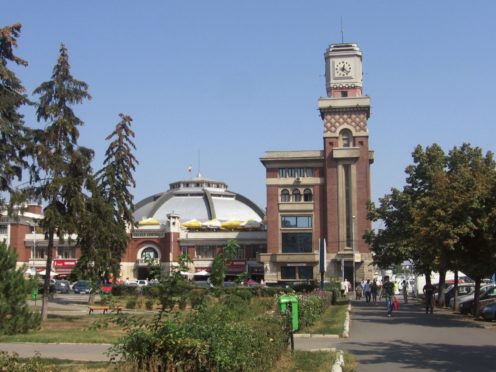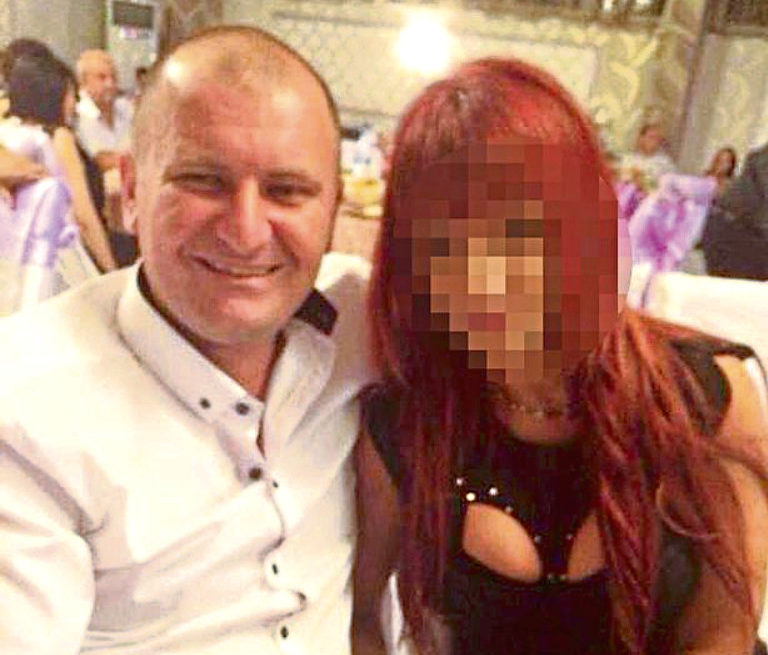
A Romanian gangster who trafficked women to Scotland to work in a £500,000-a-year prostitution ring has been jailed for more than four years in his home country, we can reveal.
Vasile Radu was the ringleader of an international trafficking operation moving victims from poverty blackspots in the Prahova region of the country to flats in the east end of Glasgow.
The gang thought they could earn more money here than in their homeland and that they could evade justice by flitting between different countries. However, their operation was dismantled after a wave of raids co-ordinated by Police Scotland and Romania’s Directorate for Investigating Organised Crime and Terrorism in Glasgow’s Dennistoun and Haghill areas in 2016.
Similar raids were mounted in Romania and, in an unusual move, a decision was taken jointly by prosecutors here and in the eastern European country to put all the accused on trial in Romania.
Following lengthy delays, in part due to the pandemic, the case was dealt with at Ploiesti Criminal Court at the end of February, with Radu, 42, sentenced to four-and-a-half years for human trafficking. The man in charge of the Scottish end of the operation, Razvan Nedelea, also known as Razvan Necula, 40, was given a suspended jail term of two years as well as three years’ probation and 60 days’ community service for procuring women to work in prostitution.
Six other gang members were sentenced for their part in also procuring women. Nicoleta Nastase, 32, Roxana Necula, 38, Constantin Lamba, 39, Justinian Filip, 27, Viorel Ioan 46, and Cristian Toma, 32, all received suspended jail terms, probation and community service.
Radu was also forced to hand over £60,000 to the court while Nedelea forfeited about £40,000 which he took from the earnings of six women working in Glasgow. Radu was also ordered to pay back a further £8,500 to one of the women.
Nedelea is believed to have moved from Romania to London in 2014 and came to Scotland as part of the crime network the following year. He made an appearance at Glasgow Sheriff Court in 2016 before the prosecution was switched to Romania.
Sources estimated the vice network may have made £500,000 in a year before it was dismantled. The gang sold the women online and through agencies and dictated their number of customers, how much they charged and where and when they would be seen.
Nedelea, Necula and Toma are understood to have lived at the time in Glasgow’s Roslea Drive.
A Joint Investigation Team was established involving crime agencies Eurojust and Europol, Police Scotland, the Crown Office, and the Romanian authorities to tackle the gang.
Operation Arcero saw Glasgow raids target two addresses in Craigpark Drive as well as flats in nearby Hanson Park, Sword Street and Corsock Street.
Raids were also carried out in Ploiesti in Romania. More than 40 potential victims of human trafficking were interviewed afterwards.
Europol said: “We actively supported the action day and provided operational analytical support to Romania and the UK throughout the entire investigation.”
A Romanian police spokesman said: “The organised group were trafficking women from Romania to Scotland with the purpose of sexual exploitation. The women worked as prostitutes in Scotland, mainly in flats rented by the criminal group members, who controlled them and collected the money they made.”
Detective Superintendent Fil Capaldi, head of Police Scotland’s Human Trafficking Unit, said: “These convictions send a very clear message to criminal gangs behind human trafficking that borders are no barrier to justice.
“We will utilise all investigative methods at our disposal and continue to work with law enforcement across the world to tackle trafficking and bring an end to the horror of modern slavery and exploitation.”
We are often closer than we think to victims of exploitation
by Dame Sara Thornton, UK Independent, Anti-Slavery Commissioner
The number of people identified as possible victims of human trafficking in Scotland rose from 99 in 2013 to 387 last year and this represents 387 men, women and children living in unimaginable situations, forced into labour exploitation or sexual abuse by organised criminal gangs profiting financially from the misery they inflict on others.
We need to ensure there is a concerted response to this horrific crime and I have been greatly encouraged by important work taking place to identify victims and survivors and help them recover from their experiences.
As the Independent Anti-Slavery Commissioner, I have a UK-wide remit to encourage better support and protection for victims of human trafficking and modern slavery, and I also want to see an increase in prosecutions so traffickers can be brought
to justice.
Police Scotland worked with Romanian police in this case highlighted today to tackle sexual exploitation of Romanian women trafficked to Scotland. Police made arrests in the UK and in Romania for human trafficking, significantly disrupting the activities of cross-border criminal gangs operating across Scotland and beyond.
Human trafficking is a vile crime whereby criminals exploit fellow human beings for financial gain. Vulnerable victims can be forced into labour exploitation, sexual exploitation or criminality by their traffickers.
You might come across these victims every day, “working” at hand car washes or nail bars. Criminals today use coercion to control their victims rather than keeping them locked up in chains. We are often closer than we think to the exploitation of others and everyone can play a role in trying to stop human trafficking.
I urge anyone with concerns that they or someone they know is being exploited to contact police There is help out there and we must continue to do all we can to stop this terrible crime.

Enjoy the convenience of having The Sunday Post delivered as a digital ePaper straight to your smartphone, tablet or computer.
Subscribe for only £5.49 a month and enjoy all the benefits of the printed paper as a digital replica.
Subscribe © SYSTEM
© SYSTEM